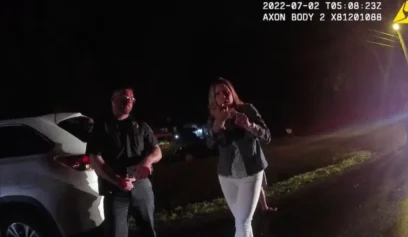Black residents who were pushed out of their Georgia homes in the 1960s for student housing are entitled to upwards of $5 million, a new report shows.
According to a University of Georgia economic analysis published last week, the former residents of Linnentown took a financial hit when they were displaced in the 1960s and were compensated next to nothing for their homes in the Athens-Clarke County area.

The estimate, however, doesn’t account for education or job loss or the emotional trauma that the residents had to face when they were forced to relocate.
“I think it’s important to note at the outset that our research is not meant to cover all forms of loss,” UGA professor Jerry Shannon said.
Linnentown was a close-knit, self-sustaining Black community before the University of Georgia and the city of Athens used eminent domain to destroy the homes and replace them with two high-rise dorms and a parking deck decades ago.
Former resident Bobby Crook said his house was equipped with a chicken coop, hog pen and smokehouse and had a fish pond in the yard. He said that everyone would help look out for each other and help each other along, from electrical work to plumbing to sowing.
Athens used eminent domain — which allows government to seize private property in cases where homeowners receive monetary compensation — to take over the properties in the neighborhood when Cook was 11 years old. It is now UGA’s Brumby Hall.
“Everybody was crying and in an uproar. ‘The university is taking our house. We’ve got to move,’ they were saying,” said Cook.
The full toll of the economic and psychological damages may never be assessed. UGA officials and Athens-Clarke County must split the repayment for undervaluing the homes.
Researchers compared how much the homeowners received in the ’60s to the fair market values of the homes today. They also compared the compensation for the Linnentown homes to home values in neighboring white communities and how moving to areas with lower rates of appreciation impacted the former residents.
Geneva Johnson Eberhart told the Athens Banner-Herald that her family received $20,000 in today’s money for their house and lot. They moved to East Athens after her house was destroyed. Her father bought a specialized shell home, but some families had to move into public housing.
“Everybody raised us. It was a village,” Eberhart said. “They got rid of everything, but they haven’t gotten rid of everything in our hearts.”
The government has the power to acquire private property for public use as long the owners receive compensation. In the early 1960s, Athens used its need for a federal urban renewal program as the reason for the upheaval of the Black families.
They paid the families hundreds of thousands less than what the properties are worth today and charged them about $144 a month in today’s money if they stayed beyond the move-out deadline. Some of the houses were burned for firefighter practice and others were demolished.
The federal Housing Act of 1949 authorizes governments to redevelop “blighted” areas under the program.
The “University Redevelopment” urban renewal project “would clear out the total slum area, which now exists off Baxter Street,” wrote UGA president O.C. Aderhold to U.S. Sen. Richard B. Russell of Georgia in 1961.
After lobbying by residents and advocates, the unified government of Athens-Clarke County officials signed a resolution in February 2021 to make amends for the urban renewal plan and compensate the former residents and their descendants. Under the resolution, Athens created a panel called the Athens Justice and Memory Project to find solutions.
Georgia law currently prohibits any state agency from giving public funds to private individuals. The resident-led panel has discussed requesting the funds to address affordable housing and other projects.


